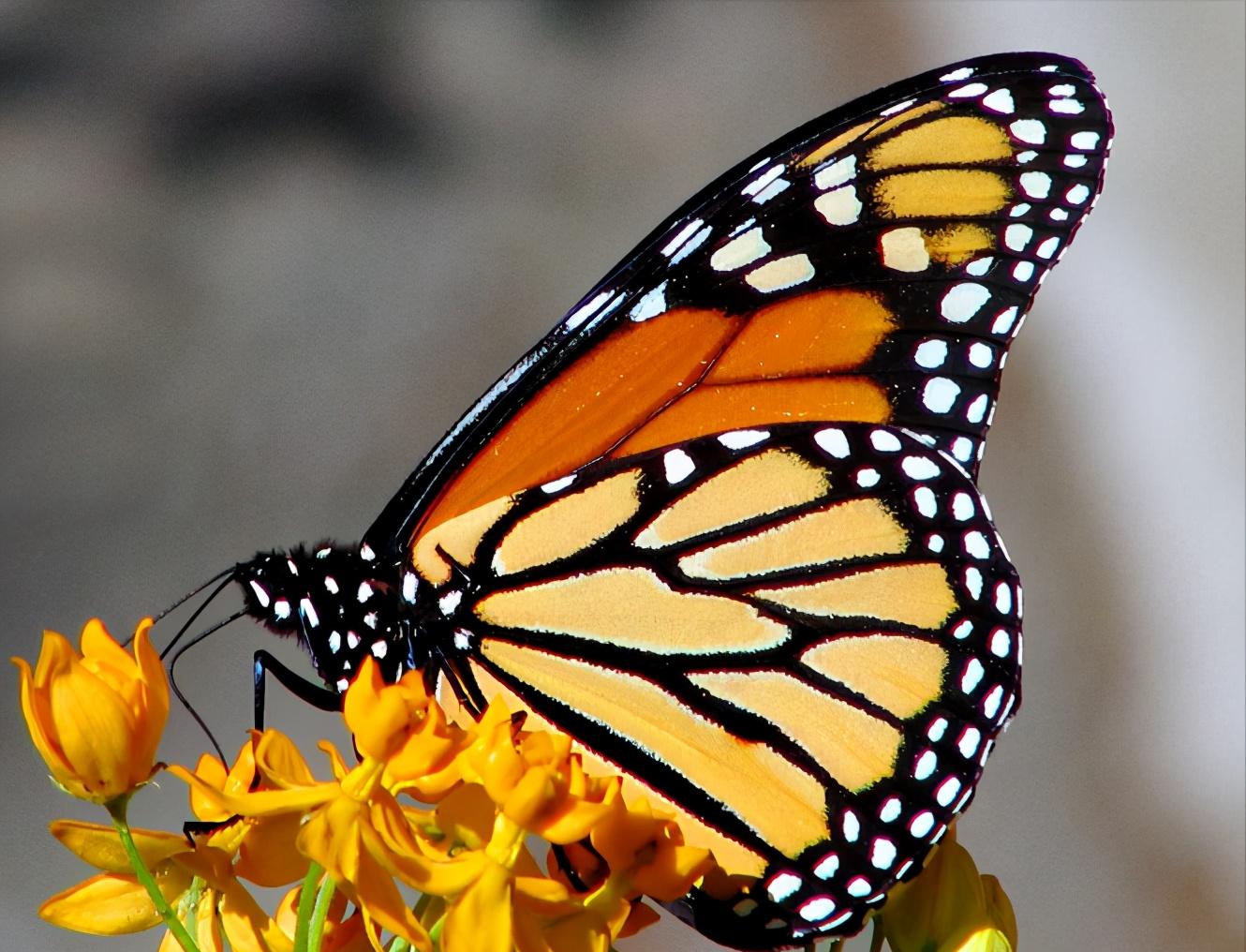Butterflies and moths belong to the order Lepidoptera.
"Wear flowers and butterflies deeply see, dot water dragonflies fly", "winding paths through flowers to find butterflies, false days to teach parrots", butterflies are loved by people for their colorful and beautiful wings.

The black-veined golden-spotted butterfly is famous for its migration of thousands of kilometers
"Obliquely pull out the shadow of the jade lamp, remove the red flame to save the moth", "sweep the floor for fear of injuring the life of the ants, cherish the moth yarn shade lamp", "The moth goes around the candle, and people get drunk in the middle of the night". In comparison, moths are not so glamorous.
Moth family: Psilogramma wannanensis Meng, 1990
Dull color
Seeing the plush moth, the reaction of the average person is to ignore it. The powder on its wings is feared and can irritate the respiratory tract and cause discomfort if inhaled. The powder is actually the scales on its wings, which protect the moth, generally non-toxic, somewhat slightly toxic, but does not cause harm to the human body. Moths in tropical rainforests, the powder will contain highly toxic. The powder retains moisture in the moth's body and reflects light when the light is dim. In addition, the powder can also deal with spider sticky webs to prevent them from sticking to spider webs.
As you know, butterflies are more beautiful than moths. But there are exceptions to everything, in fact, many moths also have a stunning beautiful appearance, different shapes, colors and sizes, even more eye-catching than butterflies, let's take a look at the fangs and get to know these natural elves!
Macrosophyllaceae: Large moths
The world's largest moth, the large silkworm moth, has a wingspan of about 25cm, which is larger than the palm of your hand
Ginkgo biloba silkworm moth, taken in Xiaohe Mountain, Hangzhou. It harms a variety of garden plants such as ginkgo biloba, walnut catalpa, walnut, chestnut, apple and so on
The cocoon of the Ginkgo giant silkworm moth is web-shaped and highly recognizable in the wild
Silkworm moth. Chū is the ancient name of the Ailanthus tree, which feeds on Ailanthus
Long-tailed silkworm moth
Green-tailed silkworm moth (male)
Moth family: Oleander moth Daphnis nerii (Linnaeus, 1758)
The larvae mainly eat the poisonous plant oleander, and the green stripes look like they are wearing camouflage suits, so they are also called "army green moths".
Moth family: Hummingbird eagle moth Macroglossum stellatarum
Hummingbird eagle moth, known as the "four different elephants" of the insect world
2 species of the family Mothidae: Brahmaea wallichii (Gray, 1831)
It is named after the stripes of the wings that resemble baskets
Purple purpurea moth, Brahmaea porpuyrio Chu et Wang
Endanger Privet, Osmanthus flowers, cloves, olives, etc
Deer moth family: Chinese deer moth Amata sinensis
Chinese deer moth, don't mistake it for a bee
Ulmus family: Biston betularia Linnaeus, the larvae are the main pests of birch trees. Darwin observed that at the end of the 19th century, the British midlands were heavily soot-polluted due to industrial developments, the trunks turned black, and the survival rate of the black birch ruler moth increased, because the light-colored birch ruler moth was more easily detected by predators. Later, the pollution was remedied, the birch trunk turned white again, and the survival rate of the light-colored birch ruler moth increased. This is the change in the characteristics of species due to environmental changes, which provides evidence for Darwin's theory of survival of the fittest.
Birch ruler moth
Changes in the color of the birch ruler moth before and after the Industrial Revolution
Lamp moth family: Creatonotos gangis Linnaeus. This is an insect monster that has appeared widely on the Internet in previous years, and is actually a black-striped gray lantern moth widely distributed in China, Australia and Southeast Asian countries. Its abdomen protrudes four tentacles, which are covered with fuzz, becoming an alien monster that scares many people, some people call it a perfumer (androconial organ), usually shrunk in the body, males in courtship, will use the gas to prop it open, emit sex hormones to attract females; some people think that it is the olfactory sensor of male moths, the villi on it are a sensory organ, which can receive sex hormones emitted by female moths, and then the male moth accurately finds the female moth and mates.
Images forwarded online
Extend four tentacles
The four tentacles retract back into the body when disturbed
The French noblewoman dog moth (screen name, also known as the poodle moth), was first posted by biologist Dr. Arthur Anker on the Internet, because of its cute appearance, cute and turned over many netizens. Arthur Anka did not provide more information describing the photograph, nor did it give the names and species of creatures in the photograph, so some people think it is a handmade product.